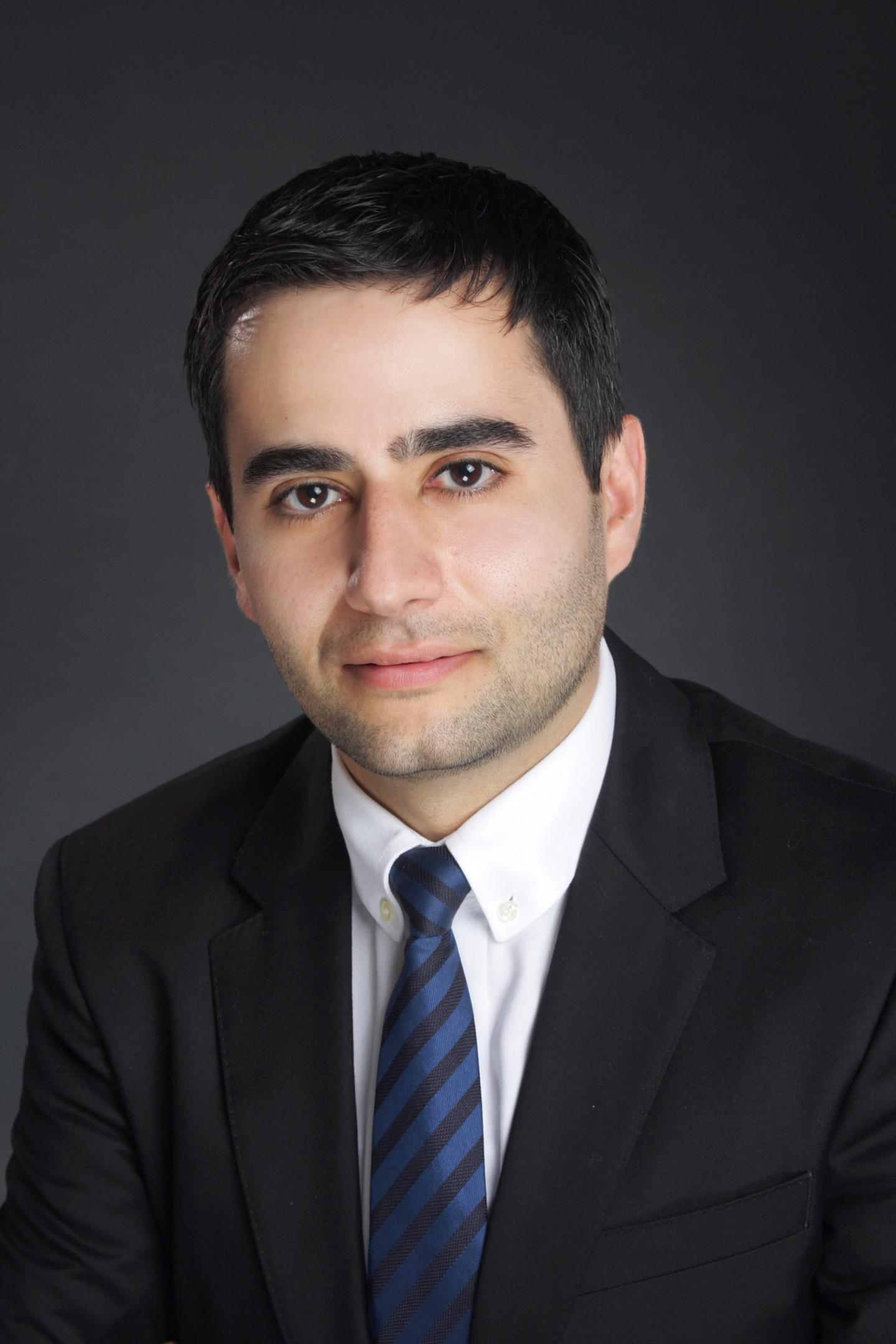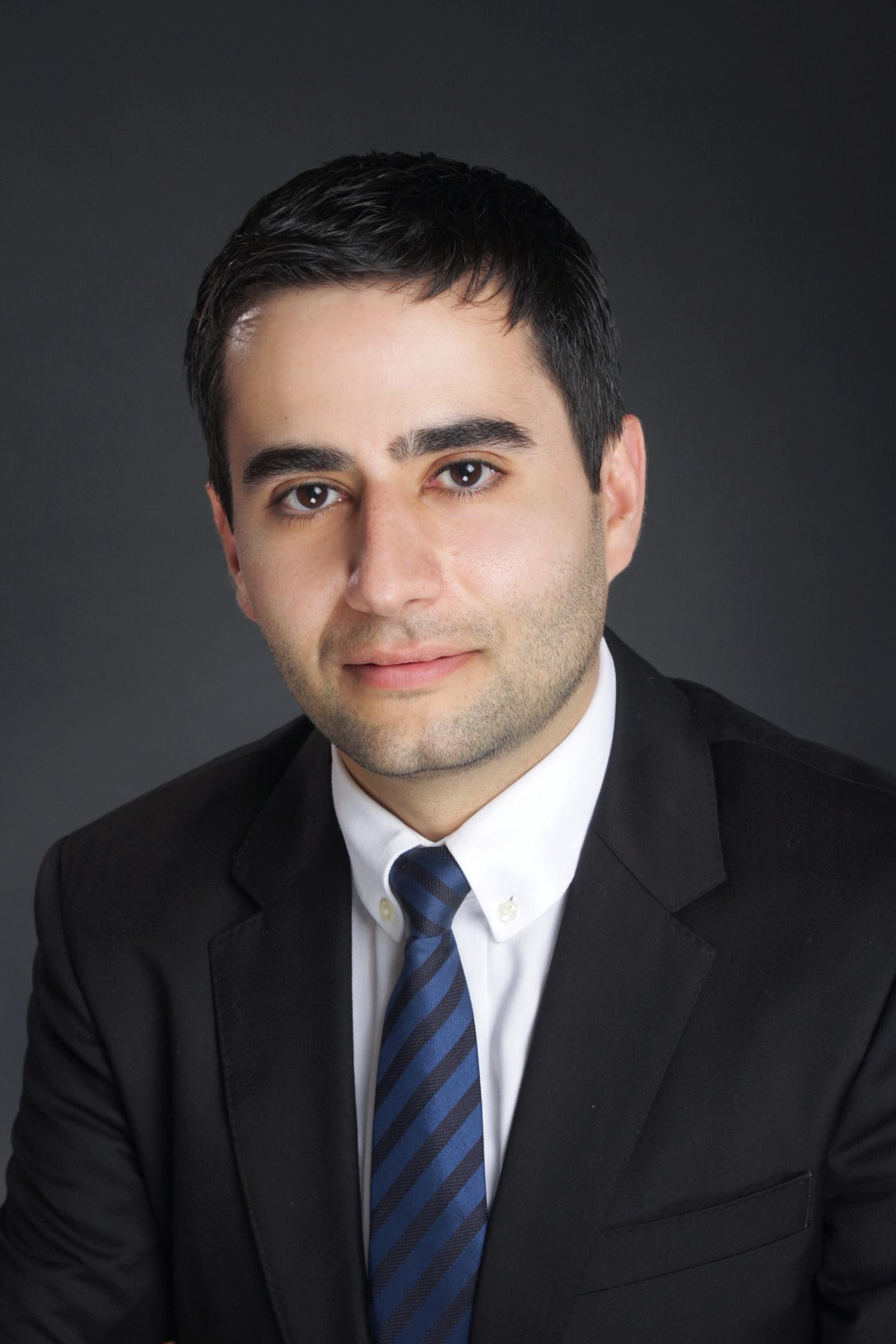
Credit: Narek Shaverdian, M.D.
SAN DIEGO, September 25, 2017 — A new survey finds breast cancer patients' actual radiation therapy experiences largely exceeded their expectations. The survey, which addressed the fears and misconceptions regarding radiation therapy for breast cancer, found that more than three-fourths of the breast cancer patients surveyed found their experiences with radiation therapy, including overall and specific long-term and short-term side effects, to be less "scary" than anticipated, according to research presented today at the 59th Annual Meeting of the American Society for Radiation Oncology (ASTRO).
"Radiation oncologists know firsthand that our patients come in with fears and sometimes misconceptions. Unlike many other treatments and fields of medicine, it is very hard to imagine what radiation therapy is like," said Narek Shaverdian, MD, lead author of the study and a radiation oncology resident at the David Geffen School of Medicine at the University of California, Los Angeles (UCLA). "Still, it is surprising to find that upwards of 90 percent of women surveyed agree that if future patients knew the reality of the radiation therapy experience, they would be less afraid of treatment.
"Advances in radiation therapy technologies over the past several decades and the increased use of hypofractionation–where radiation is given in larger doses across fewer sessions–have afforded patients more convenient treatment options, as well as lower toxicity rates in many situations," said Dr. Shaverdian.
"Our study shows that women who received modern breast radiation therapy overwhelmingly found the treatment experience far better than expected. The negative stories out there are frightening and pervasive, but they generally are not reflective of the actual experience," said Susan McCloskey, MD, MSHS, assistant professor at the David Geffen School of Medicine at UCLA, Director of the Breast Service at UCLA Radiation Oncology and senior author of the study.
Surveys were sent to all patients who received treatment for breast cancer at a UCLA-affiliated multidisciplinary breast cancer clinic between 2012 and 2016. Eligible patients had six or more months of follow-up and were without tumor recurrence. Sixty-five percent of these 502 patients returned surveys, and study findings are based on these 327 responses. The median age of survey respondents was 59 years (range 28-89 years).
Patients represented various disease stages; 18 percent had stage 0 breast cancer; 38 percent stage I; 34 percent stage II; and 9 percent stage III. Eighty two percent underwent breast conserving surgery, 13% had axillary dissection, 37% received chemotherapy, and 70% received endocrine therapy. All patients received radiation therapy (RT), delivered as either standard whole-breast RT with or without regional nodal coverage, hypofractionated whole-breast RT, post-mastectomy RT, or partial breast RT.
Patients completed the survey a median of 31 months (range 6-61 months) after completing radiation therapy. Survey questions assessed fears and beliefs about breast cancer treatment and side effects, as well as how the actual experience compared to initial expectations. Specifically, patients were asked if the treatment experience, short-term side effects and long-term side effects were as expected, worse than expected or better than expected.
Nine in ten patients (90%) found the actual experience of breast radiation therapy to be "less scary" than anticipated. Overall short-term and long-term side effects of radiation were better than expected or as expected for 83 percent and 84 percent of respondents, respectively. Patients also reported that side effects were less severe than or as expected for short-term breast pain (75%), skin changes (61%) and fatigue (78%), as well as for long-term appearance changes (85%), breast pain (79%), breast size changes (73%) and breast textural changes (70%).
More than two-thirds (68%) of these breast cancer patients reported that they had little to no prior knowledge of radiation therapy at the time of their diagnosis, yet nearly half (47%) also shared that they had previously read or heard "frightening" stories of serious side effects from radiation therapy. Nearly all women surveyed (94%) responded that they were initially fearful of receiving radiation therapy. The most common initial fears related to radiation therapy were concerns about damage to internal organs (40%), skin burning (24%) and becoming radioactive (7%). Very few patients found confirmation for these negative stories during treatment, however; among 327 respondents, eight women (3%) found the negative stories they previously read about radiation therapy to be true and six women (2%) found the negative stories they heard from family and friends to be true. The trend of finding negative stories to be largely untrue was even more pronounced among patients who underwent breast conservation therapy. Nine in ten survey respondents agreed that "After treatment, I now realize that radiation therapy is not as bad as they say it is," and/or that "If future patients knew the 'real truth' about radiation therapy, they would be less scared about treatment."
"We hope that these data, which reflect the voices of past breast cancer patients, can help to counsel future patients and their physicians on the actualities of the modern breast radiation therapy experience," said Dr. Shaverdian. "Patients who have received this treatment provide the most credible account of its actual impact, and their accounts show that outdated, negative stereotypes of breast radiation are almost universally found to be untrue."
###
The abstract, "The patient's perspective on breast radiation therapy: initial fears and expectations versus reality," will be presented in detail during a news briefing and an oral abstract session at ASTRO's 59th Annual Meeting in San Diego (full details below). To schedule an interview with Dr. Shaverdian and/or outside experts in breast cancer, contact ASTRO's media relations team on-site at the San Diego Convention Center, September 24 through 27, by phone at 703-286-1600 or by email at [email protected]
ATTRIBUTION TO THE AMERICAN SOCIETY OF RADIATION ONCOLOGY (ASTRO) ANNUAL MEETING REQUESTED IN ALL COVERAGE.
This news release contains additional and/or updated information from the study author(s). Full original abstract and author disclosures available from [email protected] or at http://www.astro.org/annualmeeting.
Study Presentation Details
- Scientific Session: Monday, September 25, 7:45 – 9:00 a.m. Pacific time, San Diego Convention Center, room 5B
- News Briefing: Tuesday, September 26, 1:00 – 2:00 p.m. Pacific time, San Diego Convention Center, room 24C, webcast: http://www.bit.do/astro17-3
Resources on Breast Cancer and Radiation Therapy
- Videos: Radiation Therapy for Breast Cancer (Spanish version), An Introduction to Radiation Therapy (Spanish version)
- Digital brochure: Radiation Therapy for Breast Cancer (Spanish version)
- Additional brochures, videos and information on radiation therapy from ASTRO's patient site, RTAnswers.org
- ASTRO's clinical practice statements and guidelines
ABOUT ASTRO'S ANNUAL MEETING
ASTRO's 59th Annual Meeting, the world's largest scientific meeting in radiation oncology, will be held September 24-27, 2017, at the San Diego Convention Center. The 2017 Annual Meeting is expected to attract more than 11,000 attendees from across the globe, including oncologists from all disciplines and members of the entire radiation oncology team. More than 2,800 abstracts sharing results from clinical trials and other research studies will be presented in conjunction with educational sessions and keynote addresses that underscore the meeting's theme, "The Healing Art and Science of Radiation Oncology." Led by ASTRO President Brian Kavanagh, MD, MPH, FASTRO, the 2017 meeting will feature keynote addresses from Richard D. Zane, MD, FAAEM, Chief Innovation Officer for the University of Colorado Health System; Lucy Kalanithi, MD, FACP, widow of Paul Kalanithi, MD, the best-selling author of "When Breath Becomes Air," with Heather Wakelee, MD, Paul's oncologist; and Vinay K. Prasad, MD, MPH, an assistant professor of medicine at the Oregon Health & Science University. During the four-day meeting, more than 200 exhibitors will demonstrate cutting-edge technology and medical device innovations for radiation oncology. Visit us online for more information about ASTRO's 59th Annual Meeting or press opportunities at the meeting.
ABOUT ASTRO
The American Society for Radiation Oncology (ASTRO) is the world's largest radiation oncology society, with more than 10,000 members who are physicians, nurses, biologists, physicists, radiation therapists, dosimetrists and other health care professionals who specialize in treating patients with radiation therapies. The Society is dedicated to improving patient care through professional education and training, support for clinical practice and health policy standards, advancement of science and research, and advocacy. ASTRO publishes three medical journals, International Journal of Radiation Oncology * Biology * Physics, Practical Radiation Oncology and Advances in Radiation Oncology; developed and maintains an extensive patient website, RT Answers; and created the Radiation Oncology Institute, a nonprofit foundation to support research and education efforts around the world that enhance and confirm the critical role of radiation therapy in improving cancer treatment. To learn more about ASTRO, visit http://www.astro.org and follow us on our blog, Facebook and Twitter.
Media Contact
Liz Gardner
[email protected]
703-286-1600
@ASTRO_press
http://www.astro.org





